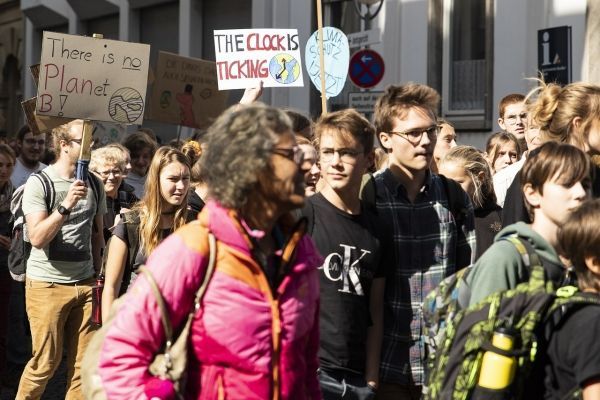Limiting global warming to well below 2°C requires a decarbonized world by 2050 at the latest and a corresponding global transformation of the energy and land use systems of societies across the world. To achieve this goal of net-zero carbon by 2050 emissions need to be cut by half every decade from now on. An interdisciplinary team of researchers now explored tipping mechanisms that have the potential to spark rapid yet constructive societal changes towards climate stabilization and overall sustainability. These tipping elements and mechanisms could bring about a transition that is fast enough for meeting the targets of the Paris climate agreement. Published in the Proceedings of the National Academy of Sciences (PNAS) the scientists identify six socio-economic tipping elements and related interventions that could bring such a transition to a deep and rapid global decarbonization on its way.
“From the energy sector to financial markets to our cities – we were able to pin down social tipping elements and identify concrete interventions that might activate contagious processes of rapidly spreading technologies, behavioral patterns and social norms”, lead author Ilona M. Otto, sociologist and economist from the Potsdam Institute for Climate Impact Research (PIK) explains. Drawing on an expert survey, an expert workshop and a thorough literature review, the social tipping interventions explored and proposed comprise the removal of fossil-fuels subsidies while incentivizing distributed energy generation; the construction of carbon-neutral cities; divestments from assets linked to fossil fuels; the exposure of the moral implications of fossil fuels; much improved climate education and engagement; and greenhouse gas emissions information disclosure.
“While this is neither a comprehensive nor a complete list, these results could help develop rapid socio-economic transformation pathways and explore narratives for a decarbonized future in 2050”, Otto adds.
Read more at Potsdam Institute for Climate Impact Research (PIK)
Photo Credit: cubicroot via Pixabay


